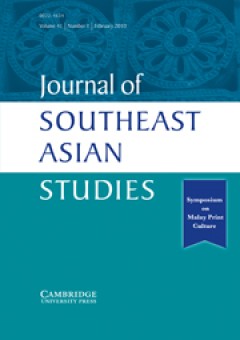Filter by

The Effect of Expectations and Expectancy Confirmation/Disconfirmation on Mot…
Over the past several years, scholars have asked how citizen satisfaction with public services might be affected by the expectations citizens have for service quality. Might satisfaction with public services be affected just not only by the perceived quality of those services but also by the quality citizens expect services to have? This line of questioning uses the so-called “expectancy discon…
- Edition
- Vol. 21, Number 4, October 2011,pp. 601-617
- ISBN/ISSN
- 10531858
- Collation
- -
- Series Title
- Journal of Public Administration Research and Theory
- Call Number
- -

Building a Theory of Learning in Collaboratives : Evidence from the Everglade…
Many of society's most vexing problems must be solved through collaborative arrangements. Growing scholarly interest in collaboratives recognizes that the capacity for collective learning may play a critical role in their success. However, limited theoretical or empirical research exists to explain how learning occurs and the conditions that support learning in this context. In this article, we…
- Edition
- Vol. 21, Number 4, October 2011,pp. 619-644
- ISBN/ISSN
- 10531858
- Collation
- -
- Series Title
- Journal of Public Administration Research and Theory
- Call Number
- -

The Benefits of Bureaucracy : Public Managers’ Perceptions of Political Sup…
Public organizations rely extensively on sources of support—political and otherwise—external to themselves to ensure continued success in meeting policy goals. The resource-dependent nature of political-administrative relations can create performance problems for organizations, especially when perceptions of political support decline. Previous literature demonstrates how low levels of political…
- Edition
- Vol. 21, Number 4, October 2011.pp.645-672
- ISBN/ISSN
- 10531858
- Collation
- -
- Series Title
- Journal of Public Administration Research and Theory
- Call Number
- -

Organizational Confidence : An Empirical Assessment of Highly Positive Public…
There is a great deal of research investigating public servants' perceptions of organizational problems (e.g., red tape, bureaucratic control); however, there is little research investigating public servants who have highly positive perceptions of their organizations. This article assesses perceptions of state employees to investigate individual- and organizational-level correlates with highly …
- Edition
- Vol. 21, Number 4, October 2011. pp. 673-697
- ISBN/ISSN
- 10531858
- Collation
- -
- Series Title
- Journal of Public Administration Research and Theory
- Call Number
- -

Managing the Inclusion Process in Collaborative Governance
Facilitators that use a collaborative governance approach are regularly pushed, mandated, or naturally desire to achieve broad inclusion of stakeholders in collaborations. How to achieve such inclusion is an important but often overlooked aspect of implementation. To fully realize the value of collaborative governance, we investigate how institutional design choices made about inclusion practic…
- Edition
- Vol. 21, Number 4, October 2011.pp. 699-721
- ISBN/ISSN
- 10531858
- Collation
- -
- Series Title
- J Public Adm Res Theory
- Call Number
- -

The Effects of Public Service Motivation on Job Choice Decisions : Disentangl…
Although most research focuses on person-organization fit to explain public service motivation (PSM)'s influence on job choice, this study investigates the independent effects of both person-organization fit and person-job fit using a policy capturing research design and a sample of first-year law students. Our findings suggest that PSM may play a more important role in person-job fit than pers…
- Edition
- Vol. 21, Number 4, October 2011,pp. 723-743
- ISBN/ISSN
- 10531858
- Collation
- -
- Series Title
- Journal of Public Administration Research and Theory
- Call Number
- -

Outcomes, Process, and Trust of Civil Servants
The contemporary performance movement has tended to assume that a key to restoring public trust in civil servants lies in a focus on outcomes or results. But there is growing evidence from various fields that trust in people and institutions of authority often depends more on process (such as fairness and equity) than on outcomes. This finding that process matters in the formation of trust judg…
- Edition
- Vol. 21, Number 4, October 2011,pp. 745-760
- ISBN/ISSN
- 10531858
- Collation
- -
- Series Title
- Journal of Public Administration Research and Theory
- Call Number
- -

Campaign Contributions, Access, and Government Contracting
It is clear that corporations seek to use campaign contributions to gain government contracts, but despite anecdotes, whether they succeed has been largely ignored in academic studies. In this article, I discuss how campaign contributions may influence contracting and consider the relationship between the donation of campaign contributions and the receipt of government contracts for a sample of…
- Edition
- Vol. 21, Number 4, October 2011,pp. 761-778
- ISBN/ISSN
- 10531858
- Collation
- -
- Series Title
- Journal of Public Adm Res Theory
- Call Number
- -

Indicators at the interface : managing policymaker-researcher collaboration
The knowledge transfer literature encourages partnerships between researchers and policymakers for the purposes of policy-relevant knowledge creation. Consequently, research findings are more likely to be used by policymakers during policy development. This paper presents a set of practice-based indicators that can be used to manage the collaborative knowledge creation process or assess the per…
- Edition
- Vol. 9, Number 3, September 2011.pp. 203–214
- ISBN/ISSN
- 14778238
- Collation
- -
- Series Title
- Knowledge Management Research & Practice
- Call Number
- -

Policy as a struggle for meaning : disentangling knowledge translation across…
Over the last decade, research in medical science has focused on knowledge translation and diffusion of best practices to enable improved health outcomes. However, there has been less attention given to the role of policy in influencing the translation of best practice across different national contexts. This paper argues that the underlying set of public discourses of healthcare policy signifi…
- Edition
- Vol. 9 Number 3, September 2011,pp. 215–227
- ISBN/ISSN
- 14778238
- Collation
- -
- Series Title
- Knowledge Management Research & Practice
- Call Number
- -

Risk communication and knowledge management in a nuclear sector : a case stud…
Despite the fact that the relevant national legislation was amended in order to achieve compliance with the acquis communautaire of the European Union, Slovakia has met challenges in developing good practices of risk communication in the nuclear sector. The aim of this paper is to summarise the development of risk communication-related legislation in Slovakia, to present the results of research…
- Edition
- Vol. 9, Number 3, September 2011.pp. 228–235
- ISBN/ISSN
- 14778238
- Collation
- -
- Series Title
- Knowledge Management Research & Practice
- Call Number
- -

Geological disposal : KM challenges and solutions
Geological disposal of radioactive waste epitomises many of the greatest challenges in Knowledge Management (KM): collating and synthesising knowledge from a host of diverse disciplines with exponentially expanding information bases, developing and preserving tacit knowledge in a project implemented over more than a century, rigorously assuring quality and ensuring informed dialogue between all…
- Edition
- Vol. 9, Number 3, September 2011.pp. 236–244
- ISBN/ISSN
- 14778238
- Collation
- -
- Series Title
- Knowledge Management Research & Practice
- Call Number
- -

Social capital as knowledge facilitator : evidence from Latvia
This paper investigates knowledge acquisition through social ties. This issue has proved important in organizational studies as a mechanism of value creation. Recently, it has also been identified in regional studies as a factor behind regional development and consensus building. Policies are therefore needed to support such knowledge acquisition. The approach is based on the concepts of knowle…
- Edition
- Vol. 9, Number 3, September 2011.pp. 245–255
- ISBN/ISSN
- 14778238
- Collation
- -
- Series Title
- Knowledge Management Research & Practice
- Call Number
- -

Research on tacit knowledge integration : a synthesis of social ties and TMS
Tacit knowledge integration which has been receiving more and more attention in the management literature is embedded in societal activities and interactions. Social networks (SN), as the prior channel of knowledge search and transmission has been applied broadly in knowledge management. With the tendency of increasing interest in knowledge management, few literatures study the effect of SN on …
- Edition
- Vol. 9, Number 3, September 2011, pp. 256–262
- ISBN/ISSN
- 14778238
- Collation
- -
- Series Title
- Knowledge Management Research & Practice
- Call Number
- -

Different views of history : Shades of irredentism along the Laos–Cambodia …
The administrative boundary between Laos and Cambodia is amongst the least studied international borders in Southeast Asia. Since Laos and Cambodia became independent in 1953–54, relatively minor but sustained tensions have characterised border relations. An important reason for disagreements is irredentist feelings. Some ethnic Lao in both Laos and Cambodia believe that part of northeastern Ca…
- Edition
- Vol. 41, Number 2, June 2010, pp 187-213
- ISBN/ISSN
- 00224634
- Collation
- -
- Series Title
- Journal of Southeast Asian Studies
- Call Number
- -

Rethinking Cambodian political discourse on territory : Genealogy of the Budd…
Despite their profound differences all of Cambodia's post-independence regimes have exhibited a unique obsession with protecting the country's borders from the depredations of neighbouring states. Some of this is fall-out from the colonial inheritance but this paper argues that older indigenous categories related to Theravada Buddhism have also played a significant role in the aetiology of mode…
- Edition
- Vol. 41, Number 2, June 2010, pp 215-239
- ISBN/ISSN
- 00224634
- Collation
- -
- Series Title
- Journal of Southeast Asian Studies
- Call Number
- -

External actors and the relative autonomy of the ruling elite in post-UNTAC C…
Cambodia has been governed by the same, relatively fixed, elite since the Vietnamese removal of the Khmer Rouge from power in early 1979. This article provides an analysis of the dynamic interplay of external and internal factors that have contributed to the perpetuation of this elite's rule in the context of a nominal political and economic transition that might have been expected to undermine…
- Edition
- Vol. 41, Number 2, June 2010. pp 241-265
- ISBN/ISSN
- 00224634
- Collation
- -
- Series Title
- Journal of Southeast Asian Studies
- Call Number
- -

‘They have not progressed enough’: Development's negated identities among…
This paper is ethnographically concerned with two different orang asli communities: the Meniq living in Southern Thailand and the Orang Sakai in Riau, Indonesia. The focus is on the different discursive rhetorics of development in the two nation-states. These rhetorics have been absorbed by the two indigenous groups to form part of their own modern cultural discourses within their respective co…
- Edition
- Vol. 41, Number 2, June 2010, pp 267-289
- ISBN/ISSN
- 00224634
- Collation
- -
- Series Title
- Journal of Southeast Asian Studies
- Call Number
- -

Famine in a land of plenty : Plight of a rice-growing community in Java, 1883…
This paper is an effort to examine the dynamics of a major famine in the private domains of Indramayu and Kandanghaur in 1883–84, which was reportedly a result of drought, but a closer look at the evidence, including a unique survey of peasant families engulfed in the famine, reveals a rather complex situation. The local peasantry confined to a narrow subsistence economy found its food supply b…
- Edition
- Vol. 41, Number 2, June 2010, pp 291-320
- ISBN/ISSN
- 00224634
- Collation
- -
- Series Title
- Journal of Southeast Asian Studies
- Call Number
- -

A traffic in Songket : Translocal Malay identities in Sambas
This paper uses the example of songket to explore translocal Malay cultural processes in Sambas, West Kalimantan. I argue these intra-Malay cultural exchanges reframe selected Sambas Malay cultural forms as Malay ‘cultural heritage’, making it difficult to view cultural practices in purely localised terms. Consequently, many cultural forms lose their localised normative values and become aspect…
- Edition
- Vol. 41, Number 2, June 2010, pp 321-339
- ISBN/ISSN
- 00224634
- Collation
- -
- Series Title
- Journal of Southeast Asian Studies
- Call Number
- -
 Computer Science, Information & General Works
Computer Science, Information & General Works  Philosophy & Psychology
Philosophy & Psychology  Religion
Religion  Social Sciences
Social Sciences  Language
Language  Pure Science
Pure Science  Applied Sciences
Applied Sciences  Art & Recreation
Art & Recreation  Literature
Literature  History & Geography
History & Geography